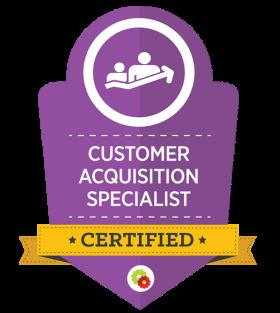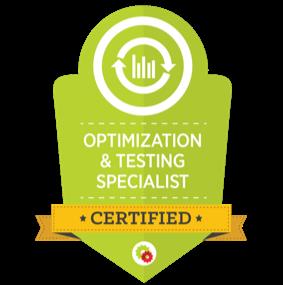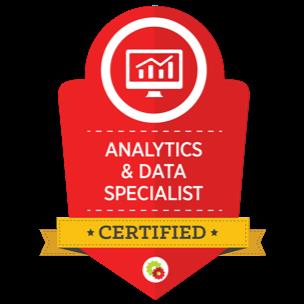
Did you know there are about 200 Facebook Ad metrics? That’s way too much to keep your eyes on. A smarter approach is to focus on a few metrics and ignore the rest until you need them. But how do you know which ones are really worth your constant attention? Let’s find out…
Every Facebook Advertiser Struggles with Metrics
You are not the only one who is lost in the maze of Facebook ad metrics. Every day, my team at MeasurementMarketing.io answers dozens of questions from business owners and agencies about this topic.
- I read somewhere that metric X is important but is that true?
- Why would I even track metric Y?
- Can I really ignore metric Z?
These kinds of questions are important, but they are often asked at the wrong moment.
The key to understanding which Facebook Ad metrics matter the most to you, is to see them as possible answers to questions you have about Facebook campaigns.
Let’s dive in…
Are my Facebook Campaigns Profitable?
Paid ads are like an investment. You pour money into ads and hope that you will get more money back.
But like any other investment, there is a difference between hope and reality.
One metric in Facebook Ads Manager will partially answer whether your ads are performing as you had hoped.
Return On Ad Spend (ROAS)
This metric tells you how much money you get back from every dollar you spent on Facebook ads.

It is calculated with the following formula:
Revenue / Ad spend
For example: (your revenue) $1,000 / $500 (spent on ads) = ROAS 2
That means that for every dollar you spent on Facebook ads, the platform generated $2 revenue.
All that sounds great, but keep the following in mind:
- Revenue and profit are different things. So, you will have to do your own calculations to find out if your Facebook ads are actually making profit for you.
- To calculate the real Return On Investment (ROI) of Facebook paid campaigns, you need to include costs for setting up and managing your ads.
- This metric is especially useful to ecommerce stores because they sell directly and know for which price. For service providers, ROAS is harder to calculate because it is hard to assign a price for someone who, for example, signs up to a newsletter.
- Facebook knows a lot about you, but you need to assign values to conversions. I cover that a bit further below.
How Much do My Facebook Ads Cost?
Running ads costs money. To keep track of how much, you can use over 60 Facebook Ad metrics. Here are some interesting ones that can give you valuable insights.
Amount Spent
This metric tells you how much money you have already spent on a Facebook ad or campaign.
Although you can set daily budgets to keep your budget under control, it is absolutely worth checking this metric regularly. If the amount is low, for example, that can mean nobody is seeing or clicking on your ads.
Cost Per Mille (CPM)
This metric answers the question how much it costs to show your ad 1,000 times. If you run awareness campaigns, it is useful for two reasons:

- CPM is a metric that is used by other ad platforms or websites that sell advertising space. It makes it easy to compare the price to advertise on different platforms. On the other hand, it doesn’t tell anything about how profitable the ads are.
- The CPM also lets advertisers easily compare the cost of different campaigns on the same platform. If, for example, the CPM for one Facebook campaign is $10 and $5 for another, it is worth diving deeper to understand what causes this price difference. Is it because of the timing? The copy of the ad? The audience? The frequency? Etc.
Cost Per Impression
This metric tells you how much every impression of an ad on Facebook costs you. It is not a very important one from the digital marketer’s helicopter point of view.

The Industry’s Most Comprehensive Paid Traffic Certification For The Post-Privacy World
Overcome iOS updates, crumbling campaigns, and surging ad costs by mastering the most cutting-edge media buying strategies from the top traffic experts in the game today.
But I included it anyway to illustrate that Facebook has metrics that can give answers to more complicated questions you didn’t come up with before.
Prices per unit also put things in a different perspective. Knowing that every bite you take from, let’s say a Philly Cheesesteak (Can you tell I’m from Philly?!?), costs you 0.25 cents, may either spoil or add more taste to your meal.
Cost Per Click (CPC)
Facebook has two metrics for clicks. CPC links are more important than CPC All, because it tells you how much a link to your landing page costs. A click that is, for example, included in CPC All is when someone clicks to see more of your ad copy.
CPCs fluctuate and the price Facebook charges you depends on factors such as timing, audience size, the services or products you promote, and so on.

Yet, the CPC is a powerful metric that is worth keeping your eyes on:
- It gives you a clear idea of how cheap or expensive clicks to your site or web shop are.If, for example, you pay $10 per click to sell a $3 product, it may be time to rethink your paid advertising strategy completely.
- A high CPC may also be a sign that your landing page has an issue. I will get back to that further below.
- CPC is also a useful metric to compare the performance of campaigns over time, or to find out which ads are repeatable or need optimization.
Cost Per Action (CPA)
Ideally, people take action when they see your Facebook ad. That can, for instance, be a click to your landing page, watching a video, sharing your page, and so on.
The CPA metric shows you how much these actions cost. It is also good to:
- Use the CPA as an internal benchmark. Simply put: if you can decrease it, you will get more at a lower cost.
- Compare the CPAs of different actions. If you take the bigger picture into account, it may turn out that you have been running ads to trigger people to take actions that don’t boost your business.
Cost Per Conversion
Another metric that is definitely worth your attention is the Cost Per Conversion. If you know, for example, that your paid ads cost you $5 for someone to add a product to the shopping cart, that will give you a good idea whether the campaign is profitable or requires fine-tuning.
Do My Facebook Ads Actually Contribute to My Goals?
The best way to find out if your Facebook ads help you actually achieve your campaign goals is to look at conversion metrics.

Conversions are important actions that people take, like adding a product to the basket, filling in a form, signing up for a trial account, and so on.
Conversion Rate
The conversion rate is the percentage of people who click on your ad and do what you want them to do. Let’s assume 100 people click on your product ad and 50 of them add the product to your cart, the conversion rate will be 50%.
That may sound exciting, but if none of them actually buys your product, the conversion rate for your sales goal will be 0%.
It is therefore important to think about your goals and conversions before you dive into metrics.
How Much Value do My Facebook Ads Generate?
In Facebook Ads, you can assign a ton of conversion values for every goal you want to achieve.
Even if you don’t sell products or courses online, you may profit from assigning a value to conversions, like the Contact conversion value or Leads Conversion Value.

Total Conversion Value
The total conversion value is self-explanatory. But it can also be misleading. If you define, for example, a Content views conversion Value or App activations conversion value, you may get a total skewed version of what your conversions actually are worth.
Is My Facebook Target Audience Even Interested in My Ads?
Although Facebook is a great advertising platform to reach your ideal audience, your ads may not be appealing to them. The following metrics can help you find that out quickly.
CTR (Click Through Rate)
The click through rate metrics is the calculated percentage of clicks compared to how many times your ad was displayed.

If, for example, your ad was shown 1,000 times and the link to your site was clicked 10 times, your CTR is 1%.
The toughest part is to decide whether your CTR is good or bad. One way to know this is to run several ads simultaneously and see which one has the highest CTR.
But this approach is risky too. A higher CTR may not result in higher conversions.
Relevance Score
Facebook assigns a relevance score between 1 and 10 to your ads. The higher the score, the more relevant the ad is for your audience, according to Facebook.
Ads can break or make your campaigns. A picture, the copy, but also how many times it is shown are all details that can make or break your campaign. The following metrics help you better understand how your ads are doing.

Conversion Rate Optimization Expert
FACT: Businesses NEED Optimization Experts (…Who Actually Know What They’re Doing) All businesses need a way to optimize the traffic they’re already getting to generate more leads and more sales.
Ad Frequency
This metric tells you how many times the ad has been displayed on average in the Facebook feed of your target audience.
Mind that this metric can mean many different things depending on the type of campaign you are running.
- With brand awareness campaigns, you can show your ad more before people get tired of it.
- If you are running a lead gen campaign, people usually get annoyed when they see the same ad too many times in a short period of time.
The list of metrics will help answer the important questions you, your business or customers have about paid marketing campaigns on Facebook
Alas, these metrics cannot give all the answers you need to run successful paid campaigns…
The 4 Biggest Mistakes Facebook Advertisers can Make
The MeasurementMarketing.io team has taught and supported hundreds of businesses with measuring and optimizing their marketing campaigns for success.
There are 4 mistakes that keep returning and I figured it’s worth dropping them here so you won’t need to make these mistakes yourself…
Mistake 1: Misunderstanding Metrics
Like any other industry, digital marketing is filled with jargon. It’s easy to misunderstand what something is and is not.

Metrics are often confused with:
- Business goals
- Key Performance Indicators (KPIs)
- Dimensions
- Segments
Metrics are just the numbers you add, subtract, multiply, and divide.
Dimensions, on the other hand, are how you sort those numbers.
For example, you might have a “Dimension” that is the Traffic Source and then the “Metric” might be the number of users from that traffic source.
Always remember though, you’ll always first start with a question in mind and then you jump into the data to find the answer (never the other way around!).
Mistake 2: Ignoring Data from Facebook
Most businesses understand that data is important. But in two situations, it is tough to make data-driven decisions.
Analysis Paralysis
Facebook Ad Manager contains a lot of data, but that is often overwhelming. Not all businesses have the know-how or resources to even look at numbers, charts, graphs and therefore simply ignore them.

Become a Certified Analytics & Data Master
At Last, You’ll Have A Powerful Analytics Dashboard That Will Help You Make Smart Business Decisions
Focus on just ONE THING at a time. I like to take the advice I learned from my buddy Jeff Sauer at DataDrivenU.com…
“Assign one KPI per team member.”
This keeps it really simple. If it’s just you, focus on the ONE metric that needs the most improvement. As your team grows, you can expand your focus (because you’ll have more people to help!).
No Access to Real-Time Data
This happens, for example, when an external party is running ads and reports monthly. By the time decision makers know what’s going on, the monthly Facebook marketing budget is already gone.
Businesses that ignore, or don’t have access to Facebook data, lose a lot more than money.
The target audience may, for example, have seen a Facebook ad too many times. It will be an expensive challenge to turn that around.
Mistake 3: Focus on the Wrong or too Many Metrics
Facebook, and other ad platforms, make it very easy to set up your first campaign. They promise you will get results without having to lift a finger.
And then reality kicks in.
At one point, you need to understand the true value of data.
But as I said in the beginning of this article, it can feel overwhelming, confusing or for some, not enough.
The opposite reaction of analysis paralysis is wanting to have even more data to make complete data-driven decisions.
Facebook Ads has a ton of them available, like
- Photo views
- Unique achievements unlocked
- Unique ratings submitted
- Cost per unique level completed
- Etc.
The question is…
Do you really need all that data to drive your business forward?

In other words, ask yourself, “Is this useful?”
This brings us to the last mistake (which actually might sound contradictory)…
Mistake 4: Ignoring Data from Other Sources
Customers start their journey after they have clicked on your Facebook ad. But as you know, a lot can go wrong when the user lands on a site or web shop.
Think, for example, of:
- The contact form may not be working.
- The site might not be optimized for a specific device.
- The conversion tracking may not be set up correctly.
- The landing page may not be aligned with the message of the ad.
- Your actual revenue may differ from what Facebook or other platforms, like Google Analytics 4, shows.
I am not claiming that Facebook Ad metrics are worthless, but you need to pick them carefully.
Sometimes the best “source of truth” will definitely be Facebook Ads. But sometimes (often!) it won’t be the best source for the answers you’re looking for.
To measure your actual revenue, for example, it is wiser to rely on data from your cart, or (even better!) your merchant processor (platforms, like PayPal, Stripe, Authorize.net, etc.).
Conclusion:
Facebook Ad metrics are very powerful to
- Measure the performance of your campaigns
- Get insights on how to improve your campaigns
- Control your paid ads budget on the biggest social media platform
- Reach the right audience with the right message at the right moment
- Achieve your business goals
But Facebook Ad metrics reveal only one part of the complicated customer journey.
If you want to stay ahead of your competitors, as a business or marketing agency, then make sure you:
- Track only the most valuable Facebook Ad metrics
- Include metrics from other platforms and tools to make profound decisions
- Give your team access to the data they need to do their job
- Present everything in a shared dashboard that’s explains itself
This is the secret sauce of businesses that thrive in the complicated digital marketing landscape.
I hope this information will help you become a better Facebook marketer or give your business a better understanding of Facebook Ad metrics and how they fit in the bigger picture of digital marketing.
[TAG12]The post 12 Facebook Ad Metrics Worth Your Attention appeared first on DigitalMarketer.
Frequently Asked Questions
What makes an entrepreneur succeed?
There are two types: those who make money and those that make time.
The difference is in how they approach business. Money-makers focus on making more while time-makers focus on making more.
Money-makers are driven by financial freedom. Their goal is to become rich and stay rich.
They are motivated by greed and fear. They don't care about the long-term because they know they will have a happy life after they achieve their goals.
This type is often called a hustler. They place emphasis on the bottom line, and they find ways to increase income without regard for quality.
Some make time. These entrepreneurs are motivated by passion. They want to create something that is meaningful and will last forever.
Their motivation is altruistic. They are motivated to do great work. They care about creating products or services that have a positive impact.
They are often called dreamers. They are motivated by vision and inspiration. They know that success requires hard work, perseverance and dedication.
But the most important characteristic of these entrepreneurs is that they are creative. They are constantly seeking out opportunities that haven't been done before.
They are attracted to the unknown. They will spend hours researching any topic that interests them. Because they love learning new things, they are always open to trying new ideas.
They can also adapt easily to change. They are not afraid to get dirty and do whatever it takes in order to win. They don't like mediocrity.
Which type of entrepreneur is it? Are you driven to make it big or do you want to find meaning in life?
If you answered yes to both questions, then congratulations! You are a successful businessman.
I've met many successful entrepreneurs over the years and noticed one common trait among them: they were driven by passion.
Entrepreneurs are not defined solely by their monetary wealth. Their impact is what defines their success.
Steve Jobs was a great example of philanthropic work, even though he wasn’t wealthy. He didn't even own a house until he was in his mid-40s.
His ability to create products that have changed the world was what gave him his wealth. And this is what makes him unique.
It is not about accumulating wealth. It's not about building empires and amassing power.
Your job is to build relationships with customers and partners. To build trust. To make others successful.
To make a difference. It's your legacy. Not your bank account.
If you are interested in building a legacy that is meaningful, let's get started.
Social Media University teaches you how passive income can be earned online. We'll show you how to market your company so that it grows automatically.
What are the different motivations for entrepreneurs?
Entrepreneurs can choose from three types of motivation. Each type has their own strengths and weaknesses.
The most common form of motivation is external, where an individual wants to make more money. This motivation comes from financial concerns.
External motivation can be driven by personal passion, ambition, or desire. These types of motivation are very goal-oriented.
Inner motivation is much more rare. Internal motivation is far more rare than wealth. Individuals with it do not seek to be wealthy. Instead, these individuals pursue other goals, like self-development, fulfillment and service.
People with internal motivation are frequently called "passionate" since they find satisfaction from their work.
The last type of motivation that is most common is intrinsic motivation. Individuals who find enjoyment and satisfaction in working towards a specific goal are called intrinsic motivation.
Motivation from within is stronger than external motivation.
Motivation comes from within. It is based in the belief that each person has certain talents or abilities. These talents and abilities enable them to achieve feats that no other person could ever do.
Feeling fulfilled and satisfied when you realize your talents and abilities is a sign of happiness. We feel important.
In essence, intrinsic motivation is what makes you happy. The joy that comes from knowing we can accomplish whatever we set our minds on is intrinsic motivation.
This sense of accomplishment is what keeps us going when things get tough.
You might even find it boring if you don’t enjoy what your doing.
Click here to read more about entrepreneur motivation.
What are five key factors that motivate entrepreneurs?
Motivation is key to success. Without it, nothing would happen. Without it, we wouldn't even be here.
Motivational psychology examines how motivation affects human behavior. When motivated, we do amazing things. There are limits to our motivation.
These are the five main motivating factors
- Autonomy – The freedom of choice
- Mastery – The ability to master your skills
- Purpose - The sense of purpose
- The feeling of belonging - relatedness
- Reciprocity: The desire to give something back
These motivators may seem like they could be used to motivate your business. You may feel that each of these motivators could be applied to your business. However, each offers a slightly unique perspective on why people act the same way.
A person may desire autonomy because he wants freedom and control over his life. He might seek mastery to be more proficient at his job.
You can go on and on. These are only a few examples of motivations. There are many other motivations. However, which ones might be most applicable to your particular situation. It all depends on you.
In order to find out, I'd recommend writing down three words that describe your ideal work environment. These words can then be applied to your current working environment.
If you are having trouble coming up ideas, ask yourself "Why am I doing it?" The answer will help you identify your goals.
Once you've identified your goals, it is possible to begin to assess where you are at the moment. You can use that information to determine if it is time for you to make changes.
If you don’t want to make any changes, it's time to assess your options.
If you want to make changes, you need to think of ways to motivate you.
Which of these motivators is most effective? It's hard to say. So instead of focusing on one single factor, focus on all five.
This will allow you to achieve your ultimate goal, becoming a successful entrepreneur.
What are some of the benefits of an entrepreneurial mindset
Entrepreneurship has many advantages. The first is your ability to be self-reliant. You stop relying on other people.
You will be able to work for yourself and follow your dreams. It helps you make connections with other entrepreneurs who share similar interests and challenges.
You gain confidence. Entrepreneurs are always learning new things. This gives you the ability and flexibility to change quickly. This will allow you to think outside of the box and not get stuck in a rut.
We are no longer bound to the regulations and rules that society places on us when we start our own businesses. We're free and able to decide what we do and how much we live.
We can choose either to follow the crowds or go against them. We can choose to be successful or not. We have the option to either fail or win.
The freedom you have is exhilarating. This freedom comes with a lot of responsibility. You are responsible for everything that happens in your business once you take on this role.
To succeed, you have to learn to manage risks. Do not be afraid to try out new things. If you're willing to try to learn from your mistakes, you'll eventually reach your goal.
These are some of the lessons you should keep in mind when embarking on your journey.
Remember:
- Entrepreneurship can be a way to live your life.
- You're the boss when your business is owned and operated by you.
- Avoid following the latest trends.
- Success isn't measured in money but rather in freedom.
- Your personal and professional lives must be balanced.
- Set clear expectations.
- Always be honest with your team.
- Be persistent if it's your desire for something to happen.
What is the importance of motivation for entrepreneurs?
Motivation is the fuel that drives us forward when we feel stuck or lost. Motivation gives us the courage to face our fears, and makes decisions that may seem impossible or risky.
Motivation is also key to success. If we lack motivation, it can lead to being unmotivated, lazy, unproductive, and eventually, unsuccessful.
The key to unlocking your potential is to find ways to motivate yourself. It is important to find a way that motivates you throughout the day.
You can think of it as a muscle. It becomes stronger the more you exercise it. It starts to weaken and atrophy if it isn’t exercised.
Self-motivated entrepreneurs are the best. They set goals and plan how they will be achieved. Then, they follow through.
There are times when you need to be motivated. These are three simple steps that will help you stay motivated.
Step 1) Get inspired. Look for someone who inspires you. Someone who is already achieving the things you dream of.
Step 2. Establish small goals. Make sure that each goal is reachable. Instead of focusing on the final result, focus on the next steps. By breaking big goals down into smaller ones, you'll be able to reach them faster.
Step 3) Reward yourself. Give yourself rewards when you've completed your goals. Reward doesn't necessarily have to be tangible; it could be simply taking the time to do something enjoyable.
Motivation is a choice. Choose to be happy and to succeed, and to live an abundant life.
You can make a difference in your life today. The first step to making a change is to choose to do so. Next, you must take action. You can start living the life of your dreams now.
How to motivate yourself as an entrepreneur
Find someone to motivate you. Ask someone who's working hard to reach his goals for how he achieved them.
Ask for advice, listen and learn, but most importantly, be sure to follow the advice. Follow the example of someone who is successful.
Be the person you want to be. Take their advice. Learn from them. Follow their lead.
Keep moving. Keep moving. Never stop learning. Never give up.
Don't let anyone tell your that you aren’t capable. Don't let anyone tell you that there isn't a path for you to follow.
You may fail, but that doesn't mean you've failed. Failure is an opportunity to grow stronger. To learn more. To push harder.
Failure is just another step in the journey to success.
You can start now. Get started today and you will be closer to your goals.
Why wait?
Statistics
- "Most of the time when people ask me about motivation, 80 percent of the time, I attribute it to gratitude. (entrepreneur.com)
- According to analysts, Johnson has high appeal in all four quadrants tracked at the multiplex: male, female, over-25 and under-25. (forbes.com)
- Our 10 years of research also shows that 75% of mentored entrepreneurs increased their revenue, and 82% of their businesses survived the first two years. (carolroth.com)
- “If you look to lead, invest at least 40% of your time managing yourself – your ethics, character, principles, purpose, motivation, and conduct. (americanexpress.com)
- I shifted my motivational point from something huge (and undefined) to improve by just 1% each day. (carolroth.com)
External Links
[TAG25]
- This is the inspiring quote Jeff Bezos keeps on his fridge
- Richard Branson, Billionaire: Here are my top 10 tips to success
[TAG28]
[TAG30]
[TAG33]
How To
What are five motivational elements for entrepreneurs?
Entrepreneurs are driven by financial independence. Because they want to be in control of their destiny, this is the main motivation for entrepreneurs. They also want enough money to support their families and provide for their own needs.
They are motivated by the desire and need to help others. Many business owners who succeed are motivated by the desire to help others.
Apart from these factors, there are many other motivations.
- Passion - You have to love what you do. If you don’t enjoy what your do, who would?
- Vision – A vision is a picture of where you want to go. As we dream, we visualize ourselves there. We are excited to dream because we know our dreams will come true.
- Courage: Don't fear failure. Take it on the chin. Failing is inevitable but it doesn't have the power to define you. While failure is inevitable, success is still possible if we keep going.
- Belief – Believe in yourself. You can't allow doubt to stop you from achieving what you want. Doubt is often the result of fear. Fear keeps us stuck in our comfort zone. You can get out of your comfort area and start moving towards your goals.
- Persistence – Never stop trying, no matter what the odds may seem. Everybody fails at times. You will eventually achieve your goal if you persevere.






